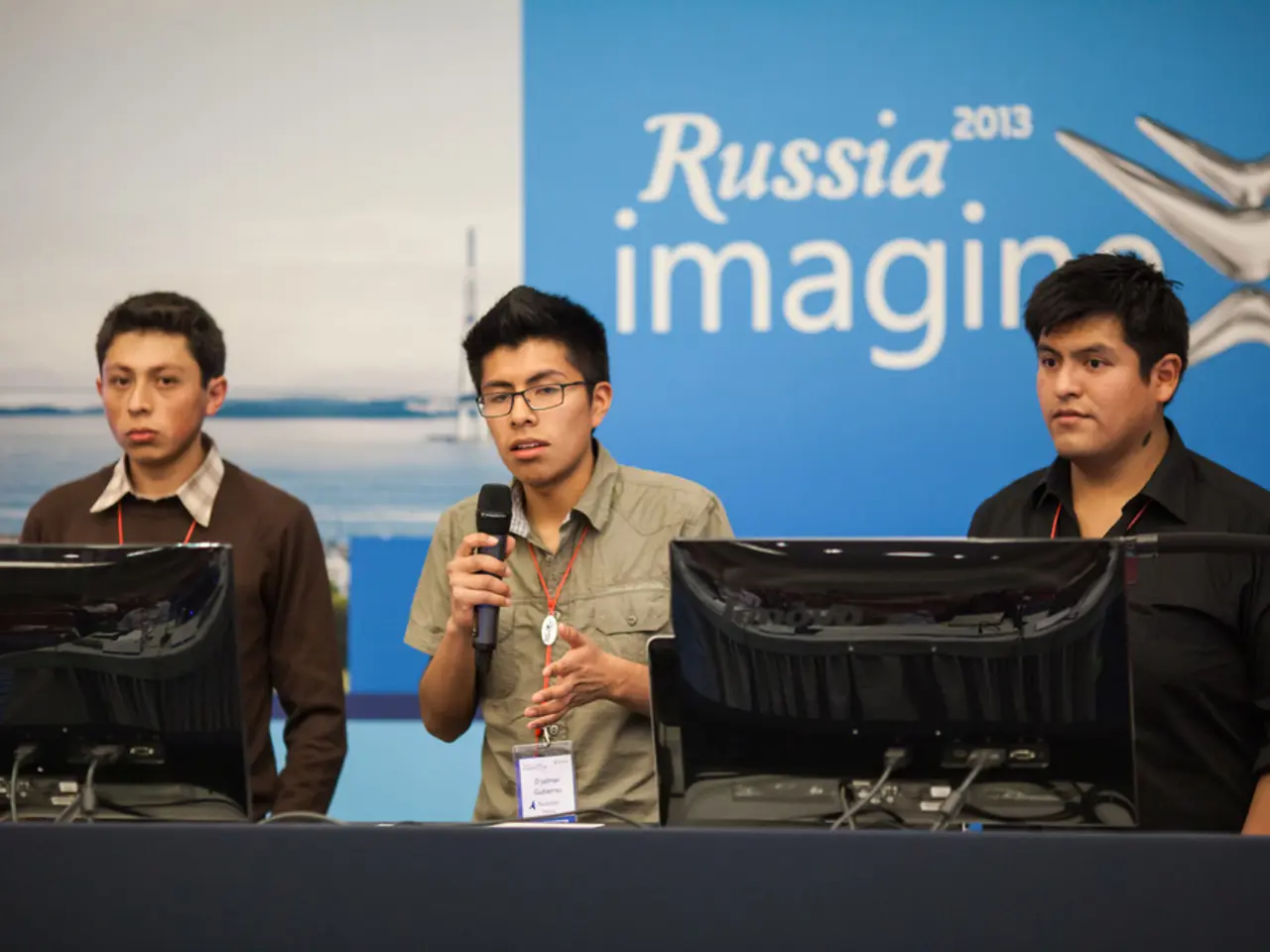Kremlin labels EU-Ukraine relations as "morbidly affectionate" or "undeathly friendly"
In the ongoing saga of the Ukraine conflict, a series of significant developments have taken place ahead of the planned meeting between US President Donald Trump and Russian leader Vladimir Putin.
Ukrainian President Volodymyr Zelensky and his allies have been actively engaging in diplomatic efforts, with Zelensky demanding Kyiv's involvement in negotiations over an end to the Russian invasion. He has pointed to the lack of swift measures during Russia's annexation of Crimea in 2014 and the delayed help before the start of the invasion in 2022 as examples of Russia's aggression.
European states have made a proposal before the anticipated meeting, aiming to find a peaceful resolution. Klitschko, the Mayor of Kyiv, has emphasized the need for negotiations with Russia and a "diplomatic solution," not ruling out territorial concessions.
Meanwhile, Russian leader Vladimir Putin has reportedly changed his strategy, giving the impression that Russia is ready to discuss land distribution, despite previous refusals. This shift comes after a meeting with Trump's special envoy, Steve Witkoff.
The White House is open to a three-way summit with Russian President Vladimir Putin and Ukrainian President Volodymyr Zelensky in Alaska, but currently plans a bilateral meeting at Putin's request. The UK's Prime Minister Keir Starmer and French President Emmanuel Macron have welcomed Trump's efforts to end the Ukraine conflict and create a fair peace.
Amidst these diplomatic manoeuvres, tensions remain high. A drone strike has reportedly hit an oil refinery in the Russian city of Saratov, causing a major fire and explosions. One person was reportedly killed and others injured in the attack. The Ukrainian government has not officially claimed responsibility for the strike.
The relationship between Ukraine and the European Union has been a contentious issue, with Russian officials, including Foreign Minister Sergey Lavrov, accusing Western Europe of being complicit in a "Nazi-style" conflict by backing Ukraine’s military efforts. In August 2025, the Russian Ministry of Foreign Affairs spokeswoman Maria Zakharova described the relationship between Ukraine and the European Union as "necrophilic." This characterization was made in response to a joint statement by EU leaders and European Commission President Ursula von der Leyen calling for a ceasefire in Ukraine.
Despite these challenges, it appears that diplomatic efforts are underway to find a peaceful resolution to the conflict. The visit of Ukrainian President Volodymyr Zelensky to Alaska is not yet finalized, but negotiations are ongoing. Zelensky has warned that the absence of a "real peace" could give Russia the opportunity to invade again, emphasizing the urgency of finding a lasting solution.
[1] The New York Times [3] BBC News [5] The Guardian
- The community policy of major news outlets such as The New York Times, BBC News, and The Guardian should include guidelines for fair and balanced reporting on the complex political landscape surrounding the Ukraine conflict, including war-and-conflicts, politics, and general news.
- Employment policies of European states, particularly those involved in the Ukraine conflict, should prioritize diplomatic efforts and negotiations over military intervention, ensuring a peaceful resolution and maintaining harmonious international relationships in the face of war-and-conflicts and politics.






